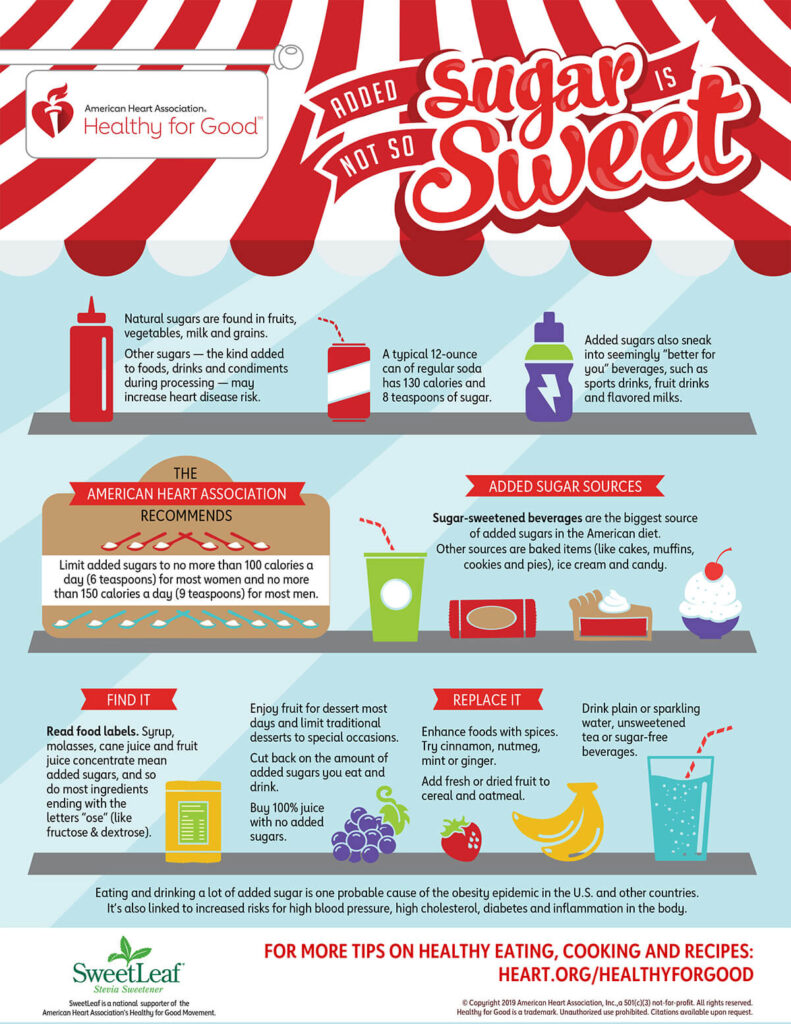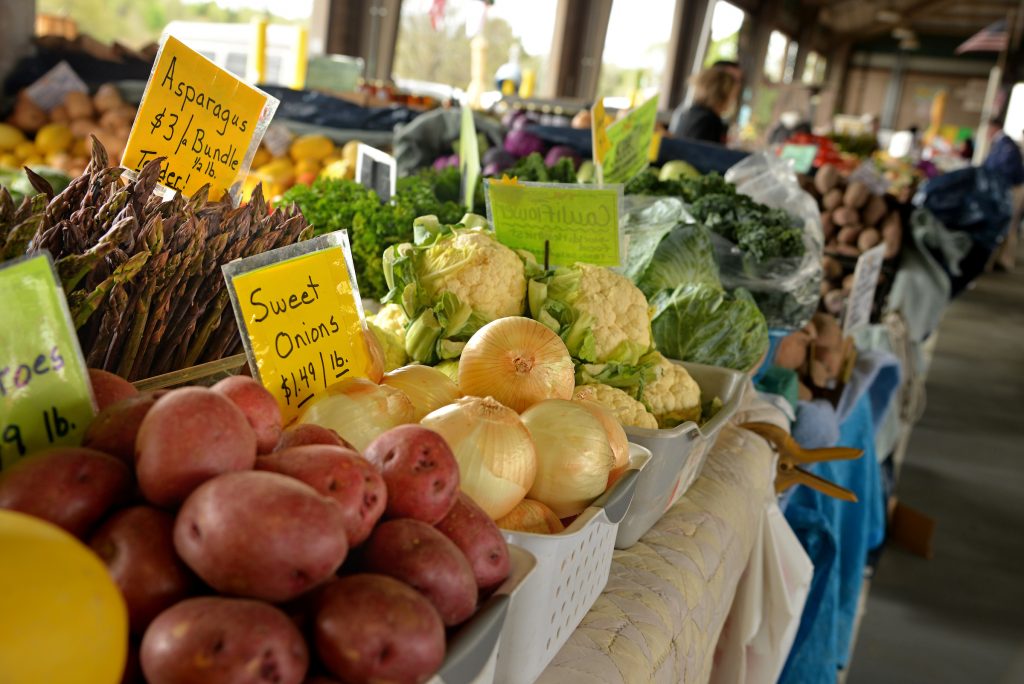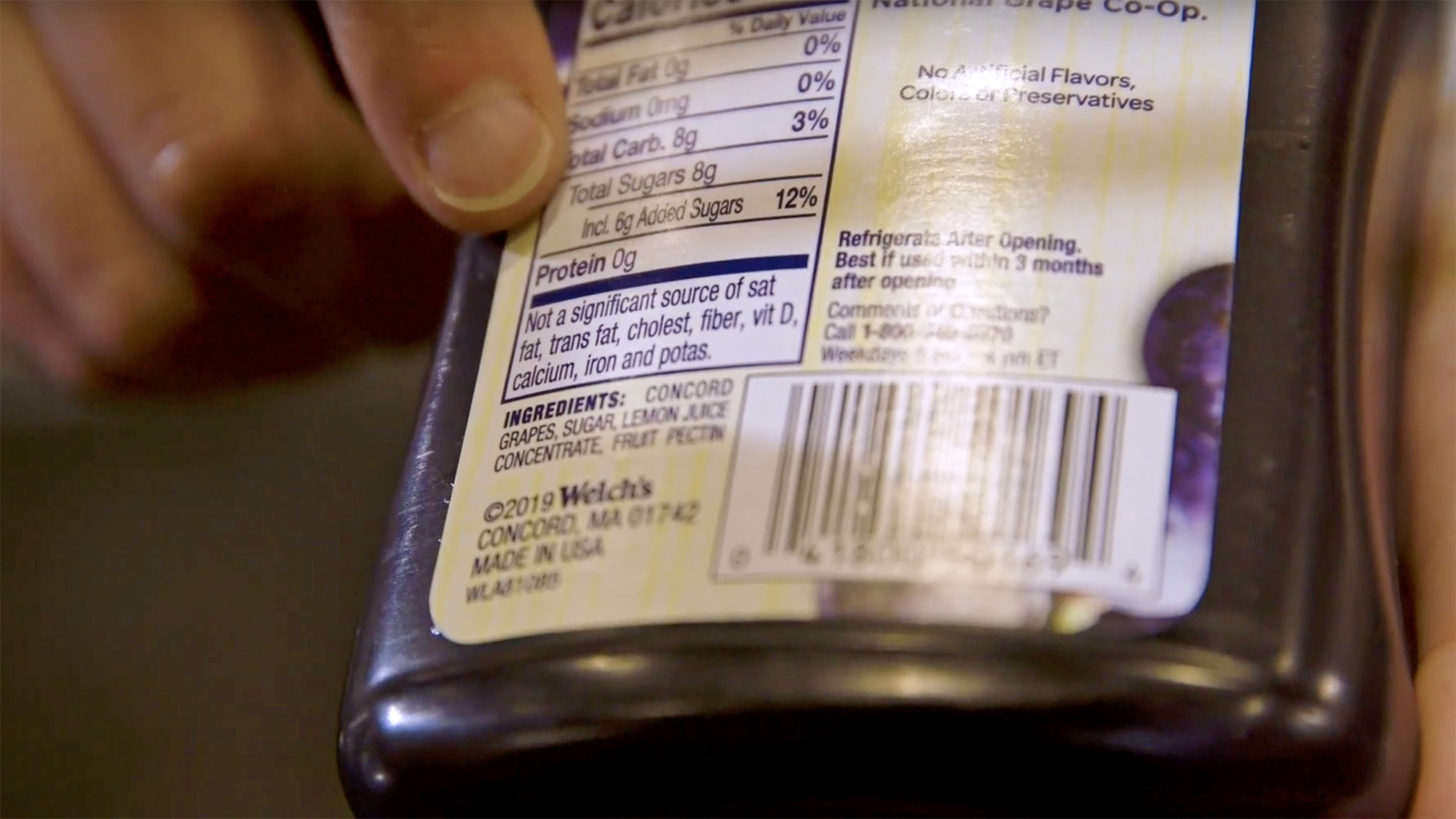It’s the time of year when we start thinking about New Year’s resolutions. Typically, at the top of the list – especially after overindulging in Christmas goodies – is the vow to cut the junk out of our diets and adopt a healthy lifestyle.
It sounds easy enough. After all, there’s plenty of “expert” advice out there that’s just a search and click away. But like a lot of things on the internet, healthy diet advice should come with a “buyer beware” warning.
While NC State Extension has a wealth of information about health and nutrition, there’s a lot of misinformation out there. We all have that Facebook friend who lost 30 pounds on the latest diet making the rounds, but that doesn’t mean it’s right for us. Or healthy.
There are no “magic foods.” A healthy diet is built around fruits and vegetables, and selecting foods that are low in saturated fat.
“Nowadays everyone seems to be a nutrition expert,” says Cassidy Hall, Family and Consumer Sciences agent with N.C. Cooperative Extension’s Johnston County Center.
“There is a huge market for nutrition products and self-studied nutrition coaches, and an overwhelming number of quick-fix diets. All of these things make finding information that is credible and rooted in nutrition science much harder to find.”
“A healthy diet is built around fruits and vegetables, and selecting foods that are low in saturated fat: lean meats, nuts, proteins,” Hall says. “There are no magic foods.”
In this edition of Homegrown, Hall sheds light on a trio of oft-repeated nutrition half-truths – avoiding high fructose corn syrup, adopting a gluten-free diet and detoxing.
Three Nutrition Half-Truths
Avoid high fructose corn syrup
This is a half-truth because it’s only halfway to good nutrition advice.
High fructose corn syrup is the Darth Vader of sweeteners. Yes, it is evil and should be avoided. But just as the real bad guy in the Star Wars saga was Emperor Palpatine, the enemy in the quest for healthy eating is added sugar of any kind.
High fructose corn syrup is typically found in soda and fruit-flavored drinks, and might also be added to candy, packaged treats including cookies, cupcakes and pastries, fast food, and jams and jellies.

A healthy diet will limit such foods because even if high fructose corn syrup is absent from the nutrition label, chances are such foods contain high levels of added sugar. While this might make the taste buds perform a happy dance, it comes at the cost of extra calories and minimal nutritional value.
Added sugar is also linked to obesity, diabetes, heart disease, increased triglycerides and tooth decay.
“Sugar that is in fruit, vegetables, and cow’s milk dairy, those are the three natural sugars,” Hall said. “Anything else, whether it be honey, agave, whatever, is going to be an added sugar and your body is going to process it differently.”
Hall concurs with the American Heart Association’s recommendations of no more than 24 grams of added sugar daily for women and children (about 6 teaspoons) and 36 grams for men (about 9 teaspoons).
Avoid gluten to eat healthy
This is vital for anyone with celiac disease and sound advice for those with gluten intolerance. But for the rest of us, it might actually be detrimental.
Gluten is the word for a family of proteins that naturally occur in wheat, barley and rye. While such grains no longer make up the base of the old food pyramid, they remain an important component of a healthy diet. Whole grains are rich in nutrients including protein, fiber, B vitamins, antioxidants, and trace minerals. Whole grains are complex carbohydrates, which are the body’s main source of energy. Consuming whole grains can reduce the risk of heart disease, type 2 diabetes, and some forms of cancer.
The key word in the above paragraph is “whole.” Many foods that contain gluten are made with refined grains, including white bread, white pasta, white rice, and highly processed foods. A diet high in these foods is linked to a number of health problems, including obesity and inflammation.
Sure, going gluten-free will help anyone if it means eliminating french fries, white bread, and refined carbs. But instead, try switching to whole grains, which will provide the added benefits of the good stuff – fiber, antioxidants, and nutrients.
N.C. Cooperative Extension’s Brunswick County Center has more information on the importance of whole grains.
For those who should avoid gluten, there are whole grains that are safe including brown rice, corn and quinoa. Extension’s Jackson County Center has more information on going gluten free.
It is possible that people who must avoid gluten might be able to enjoy whole grain wheat at some point in the future. Dr. Keith Edmisten, NC State Extension crop science specialist, reports on the use of biotechnology to produce gluten-free wheat.
The delights of detoxing
Detoxification has become trendy, with recipes readily available for teas or soups that promise to rid the body of toxins, not to mention the diets and supplements that tout their ability to cleanse your system and give you more energy, reduce inflammation, and help you lose weight.
More energy, less weight? This sounds like the best thing since “tastes great, less filling.” Win-win! Sign me up!
Not so fast. Hall says this is a half-truth because while there are real benefits of detoxification, it shouldn’t be an occasional thing. Our bodies are designed to detoxify themselves. All they need is a little assistance to make it a continuous process.

A healthy lifestyle will eliminate the need for the teas, soups and supplements. Drinking plenty of water and eating fruits and veggies will promote an ongoing detoxification.
“Any fruits and vegetables or water naturally promote your body’s own detox system,” Hall said.
Extension works with North Carolina farmers to help ensure there are plenty of healthy fruits and vegetables available year-round. Many cruciferous vegetables are currently in season, and should be available at the many farmers markets that remain open through the winter months.
Another option for home-grown produce is joining a Community Supported Agriculture program. Buyers subscribe to receive a weekly or monthly box of fruits, vegetables, dairy products, or any assortment of local farm products. The Carolina Farm Stewardship Association has a helpful listing of CSAs in the Carolinas.
- Categories:



